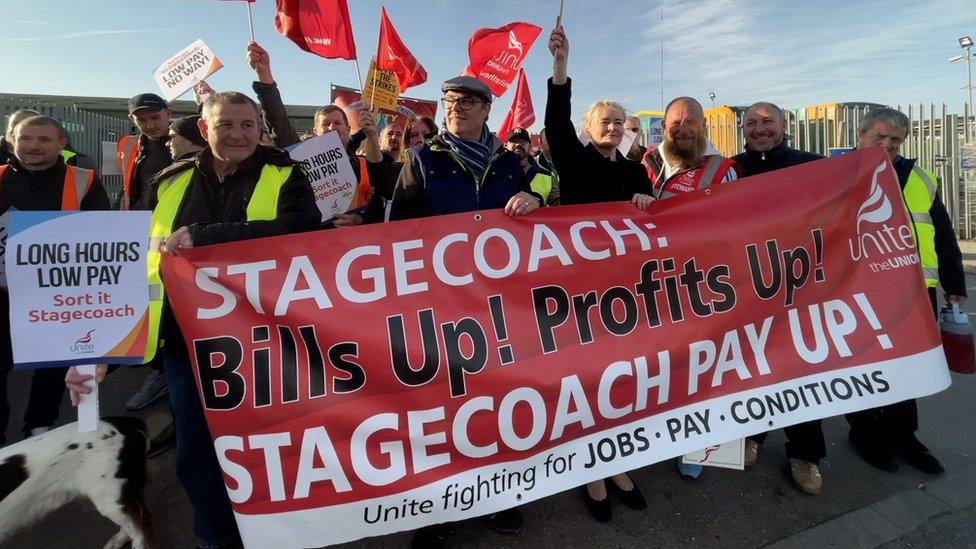Hull bus strike: Passengers share their views as drivers walk out
- Published
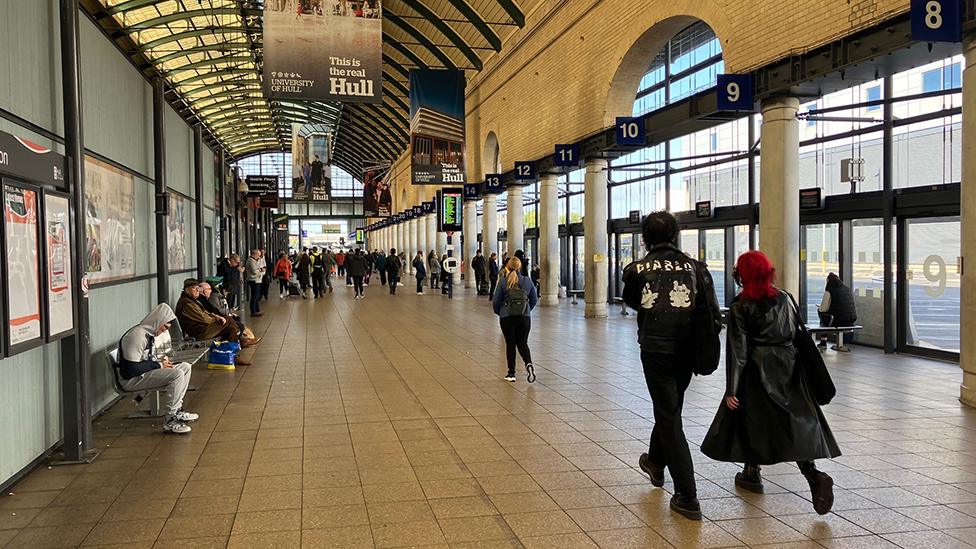
Hull Paragon Interchange is quieter than normal due to the strike by Stagecoach staff
As hundreds of Stagecoach drivers and support workers in Hull walked out in a row over pay the BBC has been speaking to bus passengers in the city about what impact the strike is having on them.
"Usually it's absolutely heaving in here," a patrolling security guard at Hull's Paragon Interchange remarks.
But, after drivers, engineers and cleaners began a strike - set to last until 29 December - the normally bustling bus station is much quieter than usual.
Bus bays lie empty, with services cut or reduced, and the few passengers there study revised timetables or search for alternative means of transport.
Outside about 100 pickets can be seen waving flags and holding banners and placards bearing slogans such as 'Low pay, no way' and 'Long hours, low pay'.
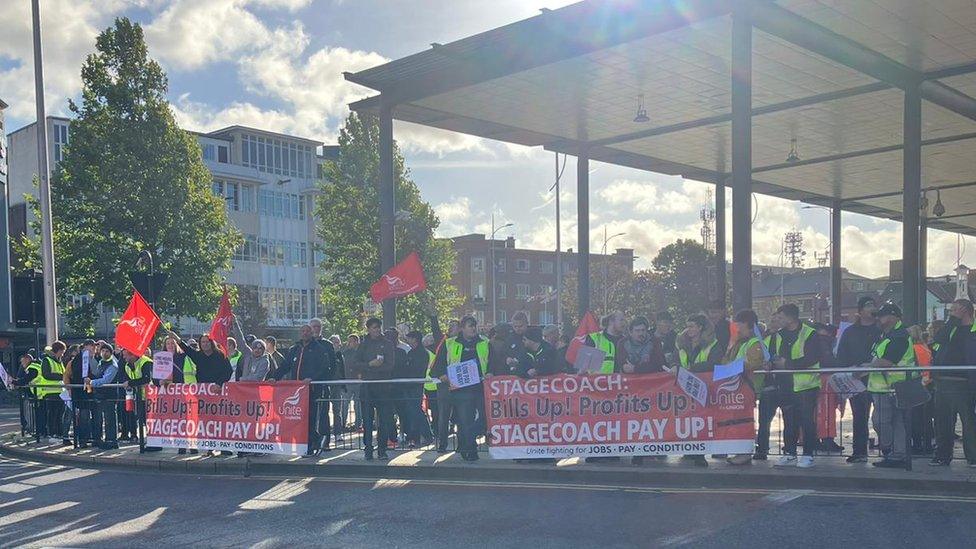
Striking bus drivers gathered outside Hull's Paragon Interchange
Inside second year psychology student Emmanuela Erath is waiting for a bus to take her to the University of Hull campus a couple of miles away. Ms Erath said she uses buses a lot and hoped the strike would not disrupt her studies .
"Getting to uni is kind of an issue when you live further away from campus," she said.
"If there's not enough buses then the timings are just messing up your schedule, the routine.
"Having to get up early getting or stressing what time the bus is coming, if the bus is coming. I've waited at a bus stop for about 30 minutes and the bus didn't come so I had to walk it."
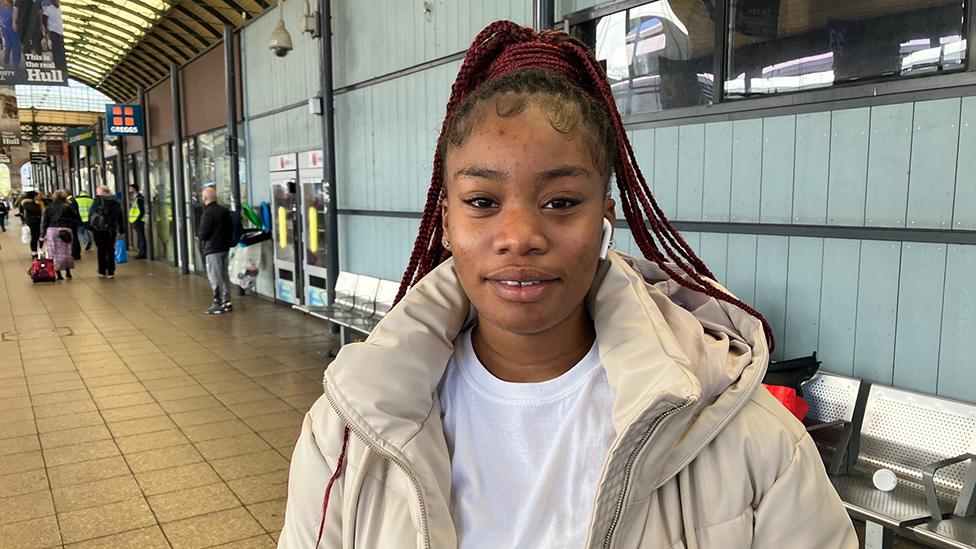
University student Emmanuela Erath said she had sympathy for the striking bus workers
She said the industrial action would also impact on her social life as well, but she had sympathy for the drivers and called for the council and the government to get involved to try and end the dispute.
"We do understand that they're obviously campaigning for a reason, but it does affects the wider community."
"The cost of living is going up so it would make sense for them to request more money because everybody needs to make a living."
Meanwhile, on the Orchard Park Estate buses did appear to be running half-hourly, as advertised.
Located on the edge of the city, the estate is totally reliant on Stagecoach services.
Maxine Smith, 52, was waiting for a bus to take her into the city centre on a shopping trip.
She said: "I can understand where [the strikers] are coming from if they want more money.
"I suppose it's a lot of responsibility driving a bus. But it's going to stop other people commuting and getting to where they need to be getting - work or hospital appointments."
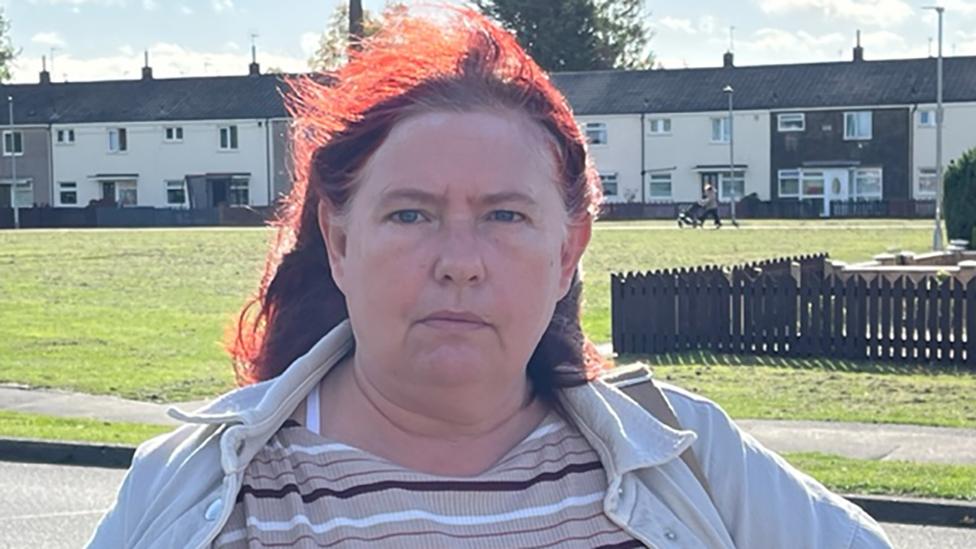
Maxine Smith from Orchard Park was waiting for a bus to take her to a city centre shopping trip
Ms Smith was concerned about the possible long-term ramifications of the strike.
She said: "If they ask for more money and they get a pay rise, will they put the bus fares up? It's £5 return to town. Is it going to go up to £6?"
On the opposite site of the road, Marleen Gossip, 76, and husband Walt, 79, were waiting for a bus to take them the short distance to Tesco in Hall Road.
"Walt can't walk far," explains Ms Gossip. "He had a heart attack last November."
The couple had been waiting about 25 minutes for a bus when one turned up.
"We rely a lot on buses but we do support the strike," said Ms Gossip. "We just wish they'd given us the actual times for the buses."
As he boarded a bus, Derek Shakesby, 62, a warehouse operative, added: "Everyone wants a pay rise these days but not everyone is going to get one."

Engineering student Bailey said he was worried delays could make him miss his deadline for handing in coursework
In north Hull, the Kingswood shopping centre also seemed quieter than usual.
Engineering student Bailey said he was worried that delays getting to his college could have a negative impact on his grades.
The 17-year-old Wilberforce College student said he was worried delays could make him miss his classes.
"It's disruptive because I've got to be at college for 10:45 and obviously I've not made it," he said.
"I've got a deadline for an assignment due in today, so not being in college I won't be able to do that."
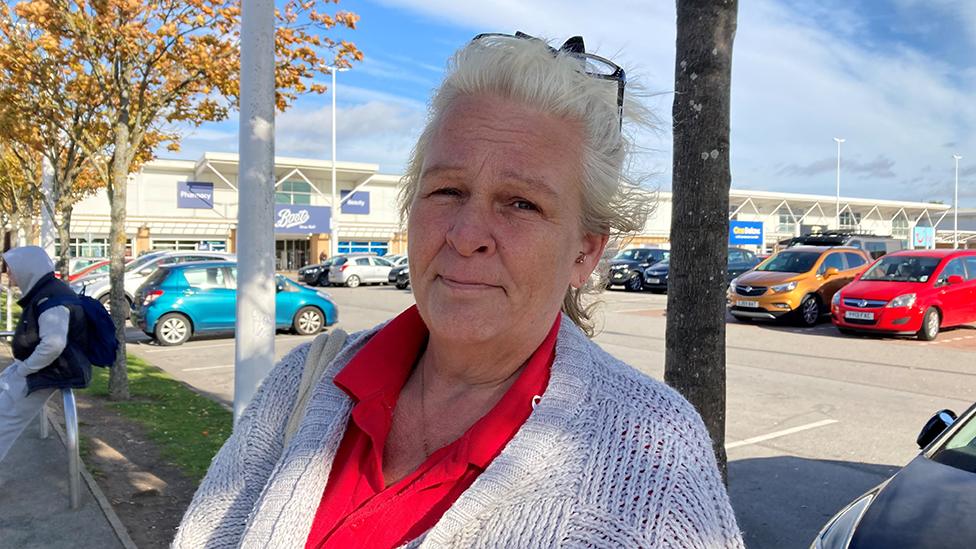
Gail Mist was waiting for a bus to take her to her job in a care home
Gail Mist, from Hull, works at a care home in Bransholme, and was catching her bus to her workplace. She was delayed by more than a couple of hours and said it was making her feel "stressed".
"I feel sorry for them [striking workers], but then in a way it's causing disruption for everybody else. And what about all the people who finish later than six o'clock on a night?"
David Turner, lives on Kingswood and works as a turnstile operator at Sheffield Wednesday Football Club. He was worried that if he cannot get a bus in time for him to reach his destination then he will have to pay a £15 taxi fare, which will eat into his wages.
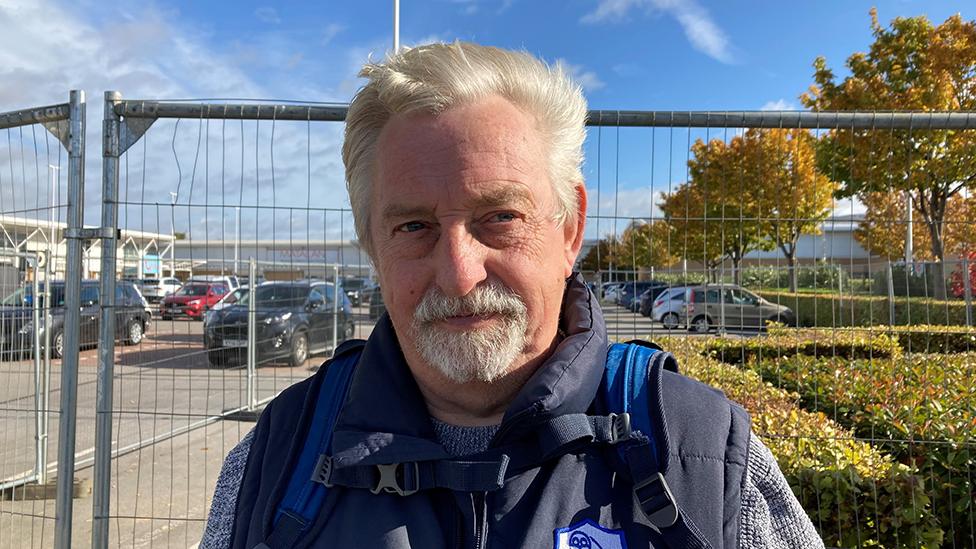
David Turner said he did not believe strike action would work
"I only make £30 at Sheffield Wednesday," he said.
"People say they're on low wages. To me, I know they're on low wages and I have sympathy with the cleaners but striking actually doesn't work nowadays. Everybody is going on strike.
"It's impacted me since September. I've had trains cancelled after a moment's notice.
"It's been terrible trying to get to work in Sheffield."
In a statement, Stagecoach said it was doing "everything possible" to keep local communities connected with jobs, education and other services.
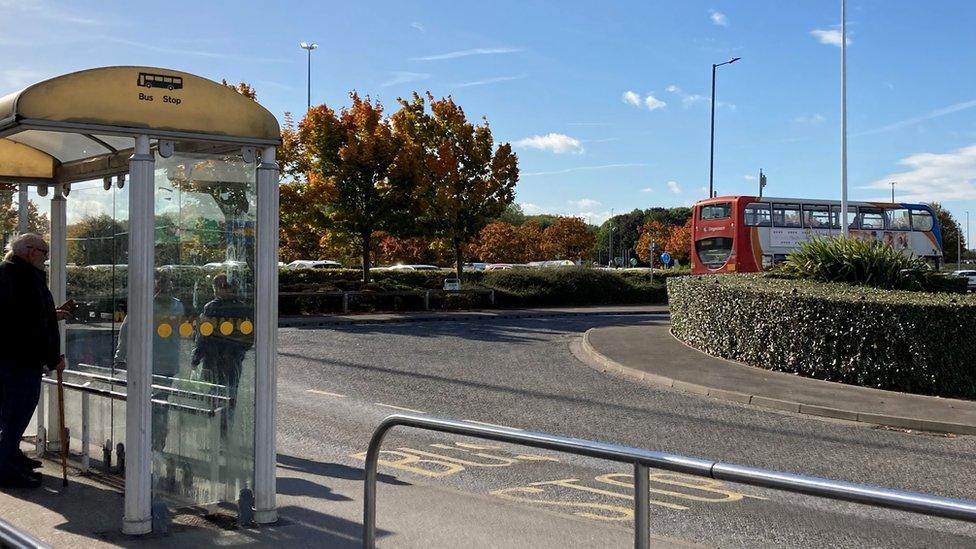
The disruption to services is expected to last until 29 December

Follow BBC East Yorkshire and Lincolnshire on Facebook, external, Twitter, external, and Instagram, external. Send your story ideas to yorkslincs.news@bbc.co.uk, external.
Related topics
- Published7 October 2022
